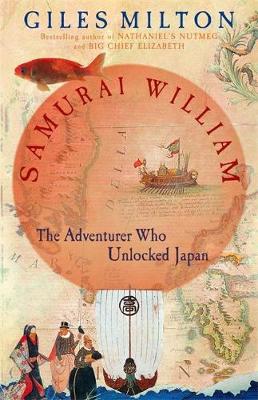
The adventures of the Englishman who opened the East. This book illuminates a Jacobean world whose horizons were rapidly expanding and a Japan that was still unknown to the rest of the world. In the winter of 1611, a letter was received by the merchants of the East India Company. The fact that it came from Japan, a forbidden and unknown land, was a cause of wonder, but even more remarkable was that the writer was an Englishman by the name of William Adams. Adams had sailed to the East in 1598, but most of his company had died by the time their ship was washed up unexpectedly in Japan. He fell in love with the barbaric splendour of the country and decided to settle. He forged a close friendship with the ruthless Shogun leyasu, took a Japanese wife and sired a new, mixed-blood family. However, his homesick letter to London inspired the merchants to plan an expedition to the Far East, wishing to trade with the Japanese through Adams' good offices.
It's an interesting topic and an interesting story, one man who survives in 17th century Japan after being shipwrecked and who becomes more Japanese as time goes by has to then try to cope with dealing with both worlds as Portugal, England and the Netherlands try to get a foothold. This is the second Giles Milton book I've read and he really hasn't grasped my imagination, there seems to be stories that I'd like to read about what's going on that are missing and while this says it's about Samurai William (who is still apparently remembered in Japan) it's more about trading and the English factors who fouled things up badly. Apparently James Clavel's Shogun is a fictionalised account of this.
If you read this be prepared to hunt up some other stuff about the period and what was going on, this left me vaguely frustrated and wanting more and felt light and insubstantial.
Reading updates
-
Started reading
-
5 May, 2009:
Finished reading
-
5 May, 2009:
Reviewed
